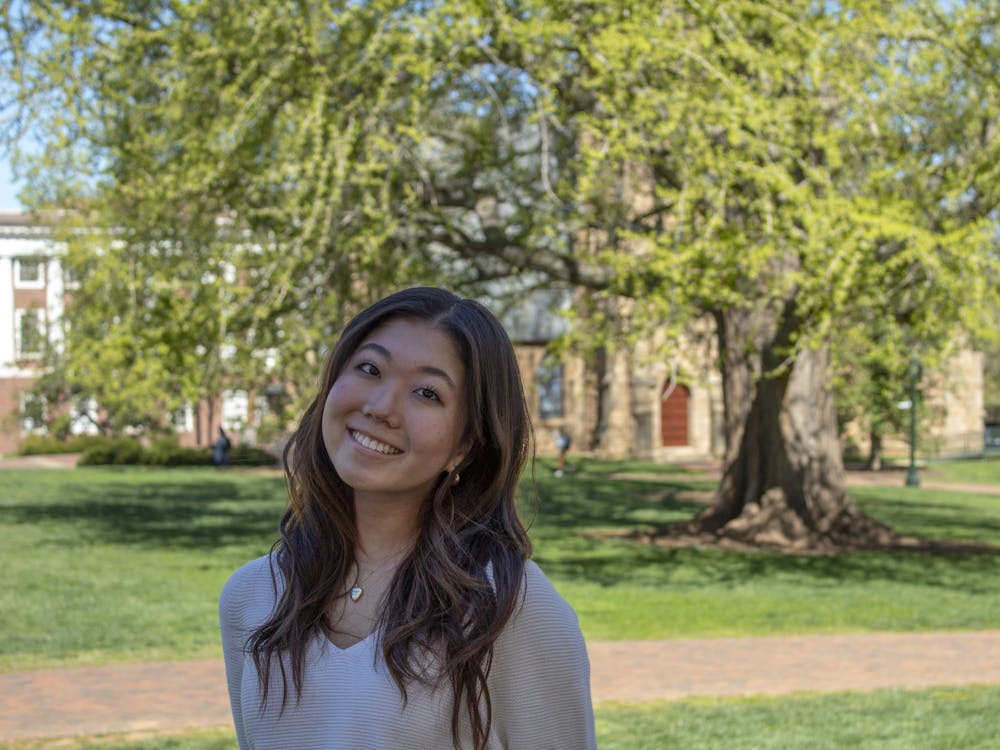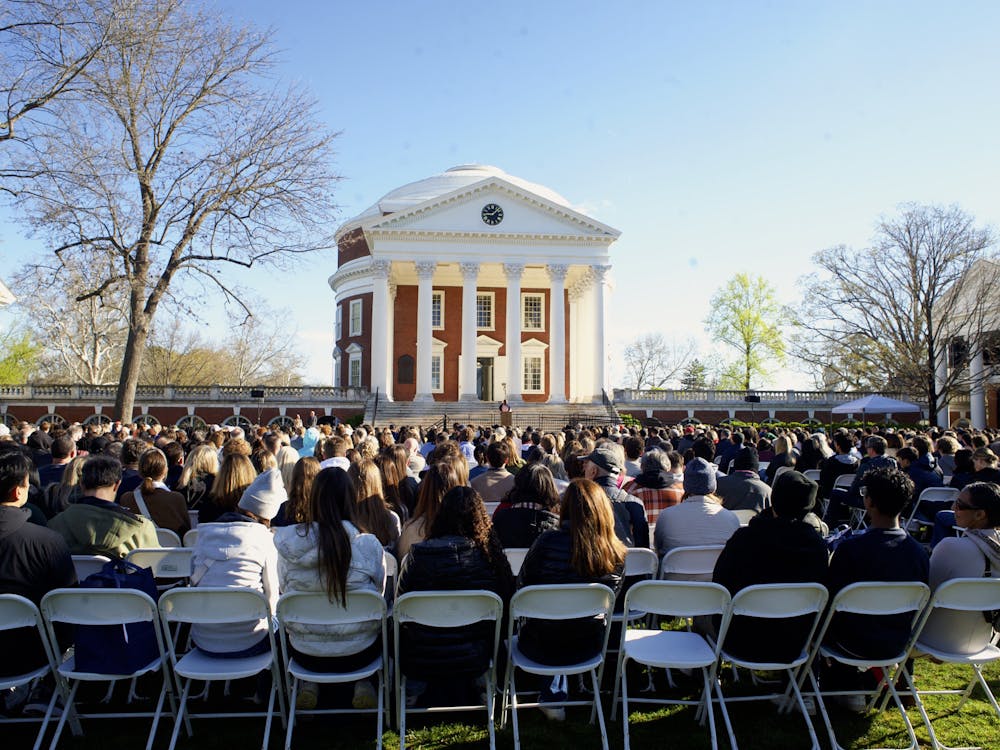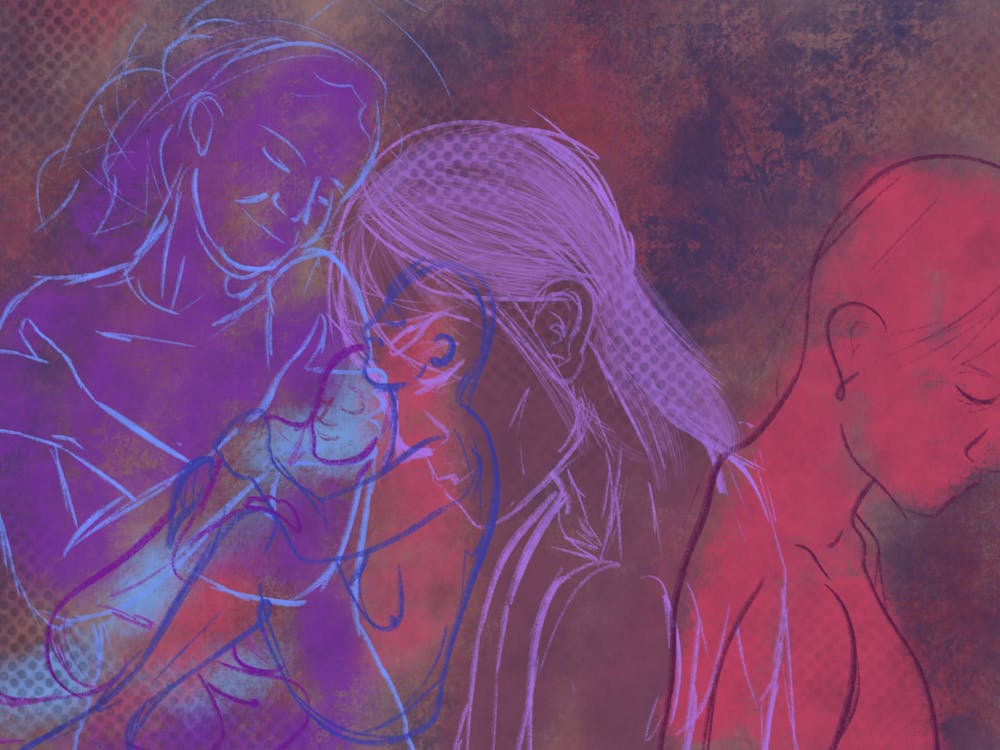For many University students, the fact that they are a part of a "community of trust" may be something that never comes to mind.\nBut for many others, such as third-year College student Jonathan Bryan, the community is not one that is all-inclusive.
"Most of my friends who are African-American view the honor system as something negative," he said, "almost like a boogeyman to be afraid of."
Alpha Phi Alpha fraternity, a historically black Pan-Hellenic organization, hosted a Nov. 3 forum that examined the relationship between minority students and the honor system. Bryan, who serves as the fraternity's secretary and treasurer, moderated the event.
The forum aimed to shed light on the perceived relationship between minority students and the honor system - a relationship that has grown increasingly complicated in recent years. Statistics reveal that minority students are disproportionately reported for honor offenses. During the 2009-10 academic year, for example, 47 cases were brought before the Honor Committee. Of these cases, 18 reports were brought against white students, seven against black students, 13 against Asian students, three against Hispanic students and five against students of unknown race.
McKenzie Furber, the Committee's vice chair for education, said such statistics contribute to an "adversarial relationship" between the Committee and the student body. This possibly negative relationship probably is not helped by the confidentiality of the Committee's proceedings, Furber added, because some students may be alienated by the "closed-door atmosphere."
Moreover, some minority students may feel as if the Committee's current composition is not particularly welcoming.
"We've seen the body of people in [the Committee] change less quickly than our student body [in terms of diversity]," said Sarah Munford, the chair of the Committee's Diversity Advisory Board. "The stereotype is that [the Committee] is pretty white, male and fratty."
That stereotype, combined with reports about minority students being disproportionately charged, creates a feeling of disconnect between the Committee and some minority students, she explained.
"I've heard the rhetoric that Honor was traditionally male and white and minorities don't feel comfortable there," said Heba Tellawi, chair of the Minority Rights Coalition.
It is difficult to determine the Committee's actual diversity, though, as it does not record the number of minority students who apply to be part of the organization, Munford said.
Furber also noted that minority students are not disproportionately convicted, and that safeguards - such as questionnaires probing at biases concerning race, religion, and sexuality - were in place to ensure a fair jury composition.
The Committee has shifted its focus this year on improving its relationship with minority students. For example, the Diversity Advisory Board hopes to dispel myths about the honor system and establish relationships with on-Grounds minority groups to engage students who feel distanced from the system, Munford said.
"We haven't been a good ally toward minority groups," Munford admitted.
The board currently is working to establish liaisons with each member group of the Minority Rights Coalition. Tellawi described the board as a "useful resource" and added that the two organizations maintain a positive working relationship.
Another one of the board's concerns is the possibility of spotlighting - the idea that certain minority groups are reported for honor offenses more frequently than white students for reasons like standing out in a room more or inherent biases. But because faculty members report the majority of honor offenses, addressing spotlighting would entail engaging faculty, "which is harder than engaging students," Munford said.
Nevertheless, without these initiatives, Bryan said he finds it difficult to believe change may take place.
"I only see change in the relationship between minorities and the honor system if there is greater and more public involvement of said minorities on the Honor Committee," Bryan said. "Just as much as we need to engage in [the Committee], we have to engage in the greater U.Va. community, or things won't change. We can't wait for change to happen."
The Committee's recent efforts to up recruitment of minority students and build positive relationships with minority and cultural groups may help people such as Bryan who want students with diverse backgrounds to take more active roles in the University community.
"In my opinion, this is the first year real efforts have been made to address concerns [about diversity issues]," Furber said.
In keeping with the Committee's broader diversity initiatives, Munford envisions the board as a bridge between the Honor Committee and the student body at large.
"There are still concerns and feelings of discontent with [the Committee] not being supportive of certain groups and not being transparent enough," she said. "I think there's plenty of work to be done"




